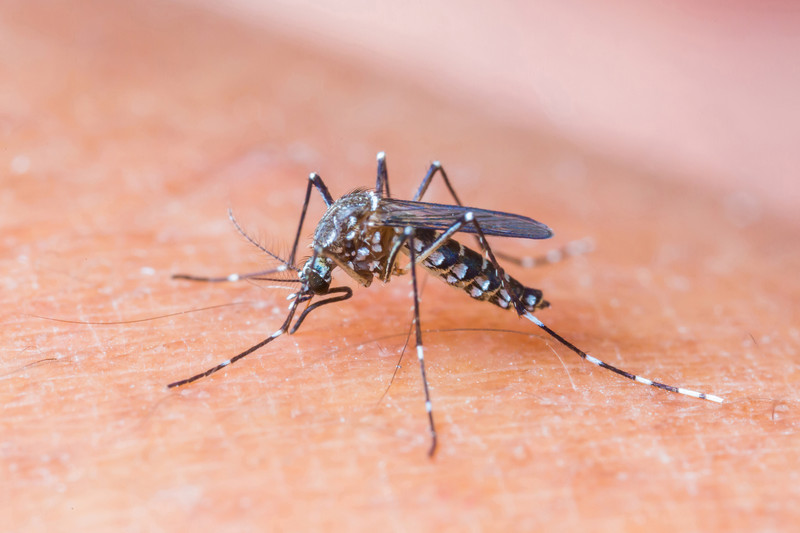| |
Oral Antiprotozoal Drugs
|
 |
Preface |
 |
Antiprotozoal drugs are a class of medication used to treat infections caused by protozoa, which are single cell organisms that belong to the type of parasites. Protozoal infections occur throughout the world and are a major cause of morbidity and mortality in some regions such as Africa and South-East Asia. Common types of protozoal infections and associated symptoms are: |
|
|
|
1. Malaria – it is transmitted by the bite of infected mosquitoes in tropical and subtropical areas of the world. Symptoms include fever, chills, sweating, headache, muscle aches, vomiting and diarrhoea. The very serious consequences of the disease are mental disturbances, convulsions and various blood and kidney disorders. These can lead to death sometimes within 24 hours since infection.
|
|
|
2. Giardiasis – it is an intestinal infection, which usually found in areas with poor sanitation and unsafe water. Infection occurs by swallowing contaminated water, by eating contaminated food or through contact with infected person. Diarrhoea is the most common symptom of giardiasis. Other symptoms include abdominal cramps, bloating, nausea and flatulence.
|
|
3. Trichomoniasis – it is a protozoal infection acquired through sexual contact. Females may present with vaginal itchiness and odorous yellow vaginal discharge. Males usually do not have any symptoms, although occasionally they may have painful urination and purulent urethral discharge.
|
|
▲ back to top
Classes of oral antiprotozoal drugs |
Commonly used oral antiprotozoal drugs can be generally classified into two main groups: antimalarial drugs and miscellaneous antiprotozoals. In addition to their use as antiprotozoals, some of them such as metronidazole and doxycycline are also used for treating bacterial infections.
The actions of antiprotozoal drugs against the infections are complex and are not fully understood. Some of them may interfere with reproduction of or damage protozoal DNA to limit the spread of an infection.
Most of the oral antiprotozoal drugs are prescription-only medicines and are available in various dosage forms such as tablets and capsules. They should only be used under close supervision by healthcare professionals.
|
Antimalarial drugs |
 |
|
Antimalarial drugs include mefloquine, chloroquine, proguanil with atovaquone and doxycycline. They kill or inhibit the growth of protozoa by affecting different stage of the parasitic life cycle. They are used both to treat and prevent malaria.
For prevention of malaria, the choice of drugs is based on the destinations you are going to visit, the risks as determined by your travelling behaviour and your previous health status.
|
|
|
|
For treatment of malaria, the type of antimalarial drug and the length of treatment will depend on the type of malaria you have, the severity of your symptoms, where you caught malaria and whether you have taken an antimalarial to prevent malaria. If you have taken an antimalarial as a preventative measure, the same type of antimalarial should not be used to treat malaria. It is therefore important to tell your doctor which antimalarial you have previously taken. Besides, your doctor may recommend using a combination of different antimalarial drugs to overcome strains of malaria that have become resistant to single types of medication.
|
Miscellaneous antiprotozoals |
|
Commonly used miscellaneous antiprotozoals include metronidazole, tinidazole and nifuratel.
Metronidazole is the most common treatment for trichomoniasis and giardiasis. Its action in the treatment of protozoal infections remains poorly understood, however, it may work by damaging protozoal DNA.
Tinidazole works as well as metronidazole and has many of the same side effects, but it can be given in a single dose. Whereas, nifuratel can be used as an alternative to metronidazole or tinidazole in the treatment of trichomoniasis.
|
|
▲ back to top
Common side effects and precautions of oral antiprotozoal drugs |
Antiprotozoal drugs
|
Common side effects
|
Precautions
|
Antimalarial drugs
|
| Mefloquine |
- Nausea and vomiting
- Dyspepsia
- Abdominal pain
- Diarrhoea
- Dizziness
- Headache
- Insomnia and vivid dreams
|
- Use with caution in patients with epilepsy, seizures, depression or other mental health problems, severe heart or liver problems
|
| Chloroquine |
- Gastrointestinal disturbances
- Headache
- Hypotension
- Convulsions
- Visual disturbances
- Depigmentation or loss of hair
- Rashes and pruritus
|
- Use with caution in patients with neurological disorders, myasthenia gravis (a condition with muscle fatigue and weakness), glucose-6-phosphate dehydrogenase (G6PD, an enzyme which helps red blood cells function normally) deficiency, liver and renal problems
|
| Proguanil with atovaquone |
- Nausea and vomiting
- Abdominal pain
- Diarrhoea
- Cough
- Headache
- Dizziness
- Insomnia and abnormal dreams
- Depression
- Anorexia
- Fever
- Skin Rash
|
- Should not be given to pregnant or breastfeeding women
- Not recommended for patients with severe kidney problems.
|
| Doxycycline |
- Nausea and vomiting
- Diarrhoea
- Difficulty in swallowing
- Oesophageal irritation
- Cause yellow teeth and teeth disfigurement if taken during teeth development
|
- Should not be given to pregnant or breastfeeding women and children under 12 years
- Not recommended for patients with kidney, liver disease
- Tablets or capsules should be swallowed whole with plenty of fluid and taken with food. Patients should not lie down for about half an hour afterwards
- Avoid taking with antacids, milk, calcium or magnesium salts
- Photosensitivity may occur rarely. Avoid prolonged sunlight exposure and use appropriate sunscreen
|
Miscellaneous antiprotozoals
|
| Metronidazole and Tinidazole |
- Nausea and vomiting
- Unpleasant metallic taste
- Furred tongue
- Oral mucositis
- Anorexia
|
- Avoid drinking alcohol beverages
- Use with caution in patients with blood disorders, central nervous system disease and severe hepatic impairment
- Should not be given to pregnant women
|
| Nifuratel |
- Gastrointestinal disturbances
- Damage to the peripheral nervous system
- Easy or excessive bruising and bleeding
|
- Should not be given to patients with renal impairment, neuropathies or G6PD deficiency
|
|
|
▲ back to top
General advice on taking oral antiprotozoal drugs
|
- Complete the recommended course of treatment and take the correct dose as instructed.
- Avoiding the bite of mosquito is the first line and the best defence against contracting malaria. You are advised to rest in air-conditioned rooms or well-screened rooms, use aerosol insecticide indoor and use bed nets if sleeping areas are not air-conditioned or screened. Whilst outdoor, you are advised to wear long-sleeved shirts and trousers and apply insect repellents containing DEET on exposed skin and clothings.
|

|
- If you are having giardiasis, you should wash your hands regularly and avoid sharing utensils or towels to prevent the spread of infection among your household members.
- You are advised not to have sexual intercourse while you are being treated for trichomoniasis with oral antiprotozoal drugs, as you may become reinfected.
|
|
▲ back to top
Communication with your doctor
|
|
- If you are planning to travel to areas where there is a risk of malaria, always consult your doctor early so as to assess your need for taking antimalarial drugs, which in some cases have to be taken at least one week before travelling.
- If you develop symptoms like those of influenza or high fever while living in or after travelling to a high risk malaria region, you should consult a doctor immediately.
- Antiprotozoal drugs can interact with other medicines. Inform your doctor of the medicines you are taking, including over-the-counter medicines, so they can decide whether an antiprotozoal medicine is safe for you to take.
|
|
 |
- Inform your doctor of your medical history, as some diseases may warrant special precautionary measures.
- Inform your doctor that you are pregnant or breast feeding as some of the oral antiprotozoal drugs should not be taken by women who are pregnant or breast feeding.
- Seek medical advice immediately if you experience any symptoms or side effects suspected to be related to antiprotozoal drugs. Your doctor may review your type of medication.
- Seek medical advice if your symptoms worsen or you have any concerns about the medicines you are taking.
|
|
▲ back to top
Storage of oral antiprotozoal drugs
Oral antiprotozoal drugs should be kept in a cool and dry place. Unless specified on the label, medicines should not be stored in refrigerators. Furthermore, drugs should be kept properly in places unreachable by children to prevent accidental ingestion.
|
|
▲ back to top
▲ back to top
|
|
Acknowledgement: The Drug Office would like to thank the Professional Development and Quality Assurance (PD&QA) and Travel Health Service for their valuable contribution to the preparation of this article.
|
|
|
|
|






